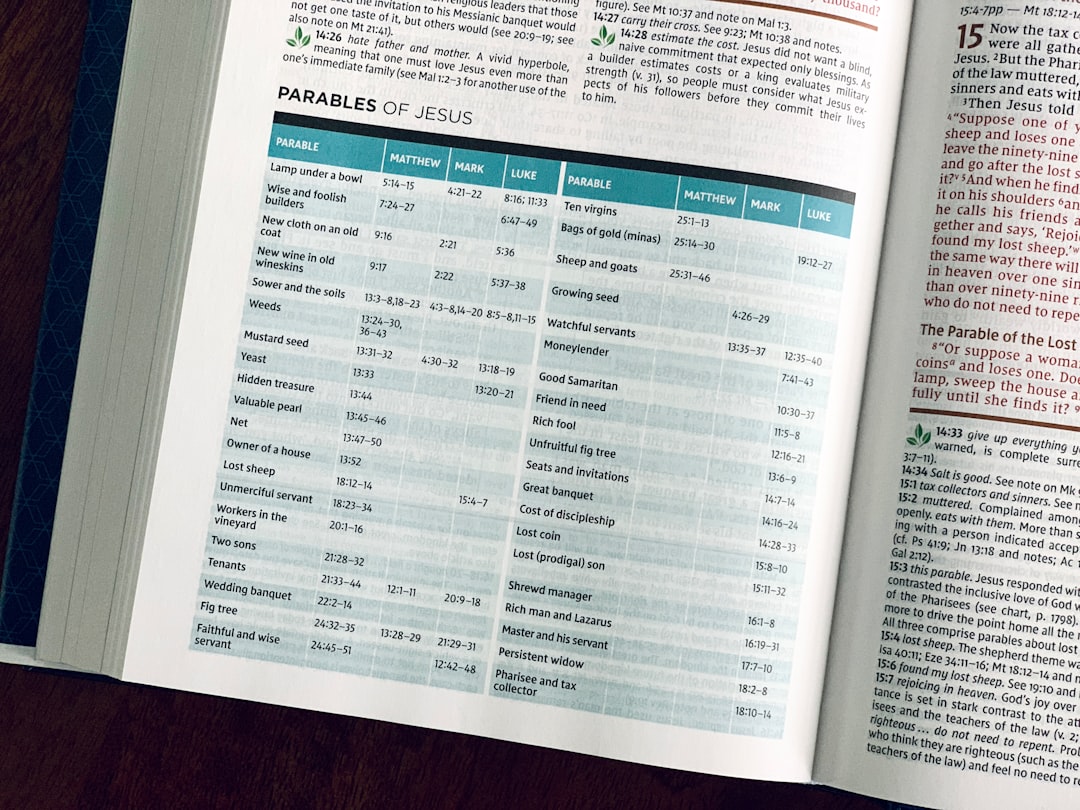Have you ever found yourself battling against fleshly desires? Although it’s a struggle we all face, few of us are able to define the exact nature of such temptations. In this blog post, we’ll explore what the Bible says about the “lust of the flesh,” its origins, and how it can lead to sin. We’ll also discuss practical steps for overcoming these desires and the role of forgiveness and grace in the process. Read on to learn more.
The Definition of the Lust of the Flesh
Before delving into the spiritual implications of the lust of the flesh, it’s important to first understand what it means. The lust of the flesh is often interpreted as the desire for physical pleasure or gratification outside of the bounds of God’s commands.

This can manifest in a variety of ways, including sexual sin, indulging in addictive substances, engaging in excessive eating or drinking, pursuing vain material possessions, and many other forms of disobedience to God. Ultimately, the lust of the flesh is a result of our sinful nature and our inherent susceptibility to temptation.
In Christianity, the lust of the flesh is considered to be one of the three primary avenues of sin, along with the lust of the eyes and the pride of life. It is often described as a powerful force that can easily lead us astray if we are not diligently seeking to resist it.

As Christians, we are called to resist the temptations of the flesh and instead pursue spiritual growth and obedience to God. This requires discipline and self-control, which can be challenging in a world that constantly bombards us with messages to indulge our physical desires.
By understanding what the lust of the flesh is and how it can impact our spiritual lives, we can begin to take steps towards resisting its pull and instead living in alignment with God’s will.
The Origin of the Lust of the Flesh
The lust of the flesh is a topic that many Christians struggle with, but understanding its origins can be helpful in overcoming it. The Bible tells us that the root of the lust of the flesh is sin. Sin entered the world through Adam and Eve’s disobedience in the Garden of Eden. Since then, everyone born into this world has a sin nature and is prone to lustful desires.
Throughout the Bible, we see examples of people giving in to the lust of the flesh. For example, King David’s adultery with Bathsheba and Solomon’s many wives and concubines. These stories serve as cautionary tales that show us the dangers of giving into our fleshly desires.
Jesus himself was also tempted in the wilderness, where Satan tempted Him with the lust of the flesh. In Matthew 4:1-11, we see Jesus being tempted with the desires of the flesh, the eyes, and the pride of life. But Jesus was able to resist these temptations and overcome the lust of the flesh through the power of the Holy Spirit.
It’s important to understand that while we may be born with a sin nature, we are not doomed to give in to our fleshly desires. As Christians, we have been given the Holy Spirit to help us overcome the lust of the flesh. Through prayer, reading the Bible, and fellowship with other believers, we can learn to cultivate the fruit of the Spirit, which includes self-control.
Furthermore, avoiding temptation is another practical step in avoiding the lust of the flesh. For example, if you know that a particular TV show or movie causes you to have lustful thoughts, it’s best to avoid it altogether. By choosing to avoid these types of situations, we can avoid the triggers that can lead us down the path of temptation.
In conclusion, the origins of the lust of the flesh can be traced back to the first sin in the Garden of Eden. However, as Christians, we have the power to resist temptation and overcome our fleshly desires through the Holy Spirit. By understanding the origins of the lust of the flesh and taking practical steps to avoid temptation, we can live lives that are pleasing to God and be an example to others.
The Dangers of Yielding to the Lust of the Flesh
The lust of the flesh can be defined as an intense desire or craving that seeks instant gratification rather than delaying or denying the desire in obedience to God. Yielding to the lust of the flesh can be very dangerous and here is why:
It leads to sin: The Bible defines sin as disobedience to God’s commands. When we allow our fleshly desires to dictate our actions, we are disobeying God’s commands. This can lead to various forms of sin such as sexual immorality, drunkenness, idolatry, and more.
It separates us from God: The Bible teaches that sin separates us from God. When we choose to yield to the lusts of the flesh, we are distancing ourselves from God and His plan for our lives. This can lead to feelings of guilt, shame, and a loss of direction in life.
It damages our relationships: Yielding to the lust of the flesh can also damage our relationships with others. Sexual sin, for example, can cause hurt and pain to both the individuals involved and their loved ones. This can result in broken relationships, shattered trust, and a need for forgiveness.
It harms our personal well-being: Satisfying the fleshly desires can bring temporary pleasure, but in the long run, it can cause harm to our mental, emotional, and physical well-being. Addiction, health problems, and emotional distress can all be traced back to the consequences of yielding to the lust of the flesh.
It hinders spiritual growth: Yielding to the lust of the flesh can hinder our spiritual growth and maturity. It takes our focus off of God and His plan for our lives and puts it on temporary pleasures. It also weakens our ability to resist temptation in the future.

As believers, we are called to resist the lust of the flesh and pursue moral purity and sanctification. This can be achieved through the power of the Holy Spirit and the practice of self-control. We must also be intentional about avoiding the things that fuel our fleshly desires and seek accountability and support from our community of believers.
In conclusion, the dangers of yielding to the lust of the flesh are numerous and can have profound negative consequences on our personal and spiritual lives. But by making a conscious effort to resist temptation and relying on the power of the Holy Spirit, we can overcome the lust of the flesh and live a life that is pleasing to God.
How the Bible Addresses the Lust of the Flesh
As a Christian, understanding the lust of the flesh is crucial to overcoming temptation and living a life according to God’s will. The Bible addresses the issue of the lust of the flesh in various ways, providing guidance and encouragement for those struggling with sinful desires.
One significant example is the temptation of Christ in the wilderness. When Satan tempted Jesus, he appealed to his physical hunger and suggested that he turn stones into bread. But Jesus responded, “Man shall not live on bread alone, but on every word that proceeds out of the mouth of God” (Matthew 4:4). This verse shows that our physical needs should not take priority over our spiritual well-being.
Another biblical example is the story of Adam and Eve. They were tempted by the serpent to eat the forbidden fruit, and they subsequently yielded to their fleshly desires. This decision had catastrophic consequences, leading to sin entering the world. This story shows that giving in to the lust of the flesh can have severe consequences and should be avoided at all costs.
The apostle Paul also wrote extensively about the struggle between the flesh and the spirit. In Romans 7:15-20, he discusses how even as a Christian, he still struggled with sinful desires. But he emphasizes the hope and redemption found in Christ and encourages believers to rely on the Holy Spirit to overcome the desires of the flesh.
The Bible also provides practical advice for avoiding temptation. For instance, in 1 Corinthians 6:18, Paul urges believers to flee from sexual immorality and to honor their bodies as temples of the Holy Spirit. Additionally, in Galatians 5:16, he encourages believers to walk by the Spirit and not gratify the desires of the flesh.
Ultimately, the Bible teaches that we can overcome the lust of the flesh through spiritual discipline, self-control, and obedience to God’s will. We must guard our hearts and minds, avoiding any thoughts or actions that lead to sin. While it is not always easy to resist our fleshly desires, following God’s guidance and relying on His strength can help us remain pure and avoid falling into temptation.
In conclusion, the Bible addresses the issue of the lust of the flesh in various ways, providing guidance and support for Christians struggling with sinful desires. By studying and applying these teachings, we can overcome temptation, live according to God’s will, and experience true spiritual transformation.
Practical Steps for Overcoming the Lust of the Flesh

Now that we have a better understanding of what the lust of the flesh is and how it can affect our spiritual lives, it’s important to talk about practical steps for overcoming it. Here are some suggestions:
Keep yourself accountable. Find a trusted friend, mentor, or small group who can help keep you accountable and support you in your journey towards purity. Share your struggles with them, and ask them to pray for you and check in with you regularly.
Avoid triggers. Identify what triggers your lustful thoughts or desires, and make conscious efforts to avoid them. This could include avoiding certain TV shows or movies, staying away from certain websites or social media accounts, or even refraining from certain conversations or situations.
Renew your mind. As we talked about earlier, the lust of the flesh often starts with our thoughts. Take time each day to renew your mind by reading scripture, praying, and focusing on positive and uplifting things. Replace negative thoughts with positive ones, and choose to focus on truth instead of lies.
Practice self-control. As Christians, we are called to exercise self-control in all areas of our lives. When it comes to the lust of the flesh, this means choosing to say no to our desires and instead trusting in God’s plan for our lives. It also means avoiding situations or activities that may lead us towards temptation.
Seek professional help if needed. If you are struggling with sexual addiction or feel overwhelmed by your desires, seek professional counseling or therapy. There is no shame in getting help, and it can be a powerful step towards healing and freedom.
Remember, overcoming the lust of the flesh is a process, and it won’t happen overnight. Be patient with yourself, and don’t give up. With the help of God and a supportive community, we can all learn to live pure and holy lives.
The Role of Forgiveness and Grace in Overcoming the Lust of the Flesh
The battle against the lust of the flesh is not an easy one. There will be times when you will fail and fall into temptation. Despite this, it is important to remember that forgiveness and grace are available to help you overcome your struggles.
In the Bible, we learn that no sin is too great for God’s forgiveness. All you have to do is repent and ask for forgiveness, and God will forgive you. This forgiveness is not something that we earn, but rather a gift of grace that God freely gives to those who believe in Him.
It is important to remember that forgiveness is not a license to keep sinning. Rather, it is an opportunity to start fresh and make a deliberate effort to resist temptation. This is where spiritual discipline comes in. By immersing yourself in the Bible and prayer, you can learn to overcome the fleshly desires that lead you astray.

Another important aspect of forgiveness and grace is the role they play in helping us resist temptation. When we are forgiven, we are no longer under the control of our sin. Instead, we can rely on God’s power to help us overcome temptation and remain pure in heart. This is because forgiveness and grace give us the strength to resist the sinful cravings that arise from the lust of the flesh.
Ultimately, the key to overcoming the lust of the flesh is to obey God and avoid sin at all costs. This requires a deep commitment to moral purity and a willingness to put your faith into action. Through prayer, spiritual discipline, and a strong relationship with God, you can stay on the path of righteousness and avoid falling into the traps of temptation.
In conclusion, the role of forgiveness and grace in overcoming the lust of the flesh cannot be overstated. By relying on God’s power and forgiving grace, you can resist temptation and live a life that is pleasing to Him. So, if you are struggling with the temptations of the flesh, remember that forgiveness and grace are available to help you overcome your struggles.














